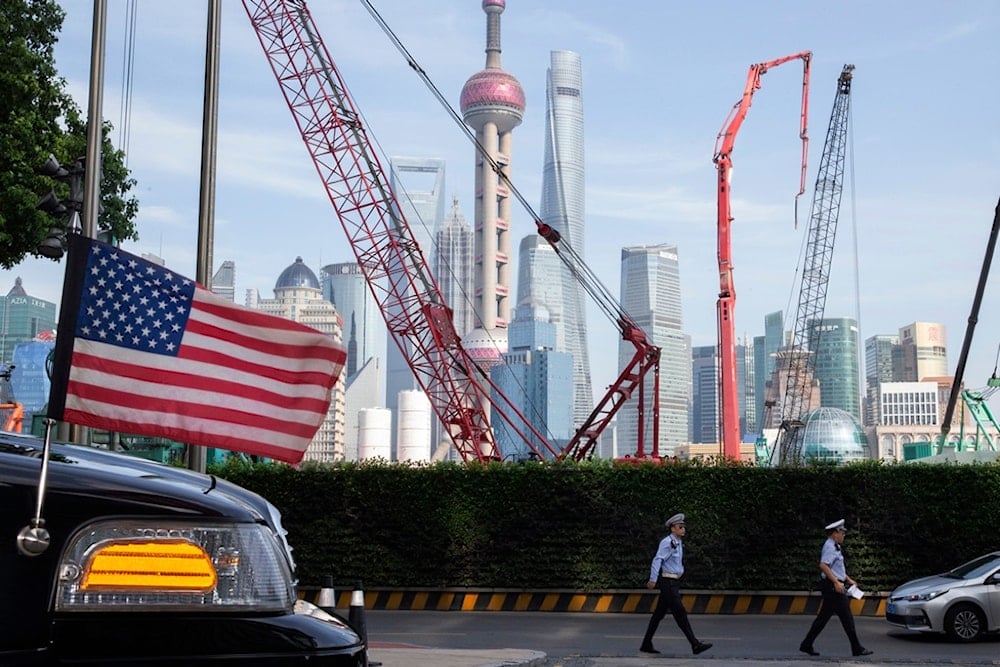China slams US 'double standards' after Trump's 100% tariff threat
China condemned Washington's new 100% tariffs as "double standards," warning that US trade aggression over rare-earth controls risks reigniting a full-scale economic confrontation.
-

Chinese traffic police officers walk by a US flag on an embassy car outside a hotel in Shanghai where officials from both sides met for talks aimed at ending a tariff war on July 30, 2019. (AP Photo/Ng Han Guan, File)
China's Ministry of Commerce has accused Washington of hypocrisy following US President Donald Trump's announcement of a sweeping 100 percent tariff on Chinese imports, marking a new escalation in tensions between the world's two largest economies.
"The relevant US statement is a typical example of 'double standards'," said an unnamed ministry spokesperson, adding that recent US actions have "severely harmed China's interests and seriously undermined the atmosphere of the economic and trade talks between the two sides."
Trump announced on Friday that the tariffs, due to take effect on November 1, were a response to what he called Beijing's "extraordinarily aggressive" new export restrictions on rare-earth minerals, materials essential for advanced electronics, clean energy technologies, and defense manufacturing. He also hinted that he might cancel an upcoming meeting with Chinese President Xi Jinping later this month, further clouding the outlook for the already fragile trade dialogue.
Beijing countered that the United States has been heightening economic confrontation since September through "punitive measures and public threats," arguing that "threatening high tariffs at every turn is not the right approach to engaging with China."
Rare earth retaliation
The dispute over rare earths has become a major front in the broader US-China rivalry. In recent weeks, Beijing has expanded its export controls on critical minerals and magnet technologies, citing national security concerns. It has also introduced restrictions on shipments of graphite, gallium, and artificial diamond components, resources vital to semiconductor and battery industries, moves that Washington and its allies see as part of China's strategy to use its dominance in resource processing as leverage in trade negotiations as Washington has continued to impose tariffs on Beijing under various pretenses.
Chinese authorities have also imposed new port fees on US-linked vessels docking in Chinese ports, launched antitrust probes into US tech companies such as Qualcomm, and tightened customs inspections on US-made semiconductor components. These measures, framed by Beijing as defensive, underscore its readiness to retaliate against Washington's economic coercion.
For its part, the US has accelerated domestic initiatives to reduce dependence on Chinese materials, including plans to stockpile rare-earth elements, subsidize domestic refining, and deepen mineral supply partnerships with allies such as Australia and Canada.
Observers warn that both sides are edging closer to a full-blown trade war reminiscent of the 2018-2019 standoff, with potential ripple effects across industries from electric vehicles to defense systems.
Read more: China vows rare earth support to India amid warming ties

 3 Min Read
3 Min Read








